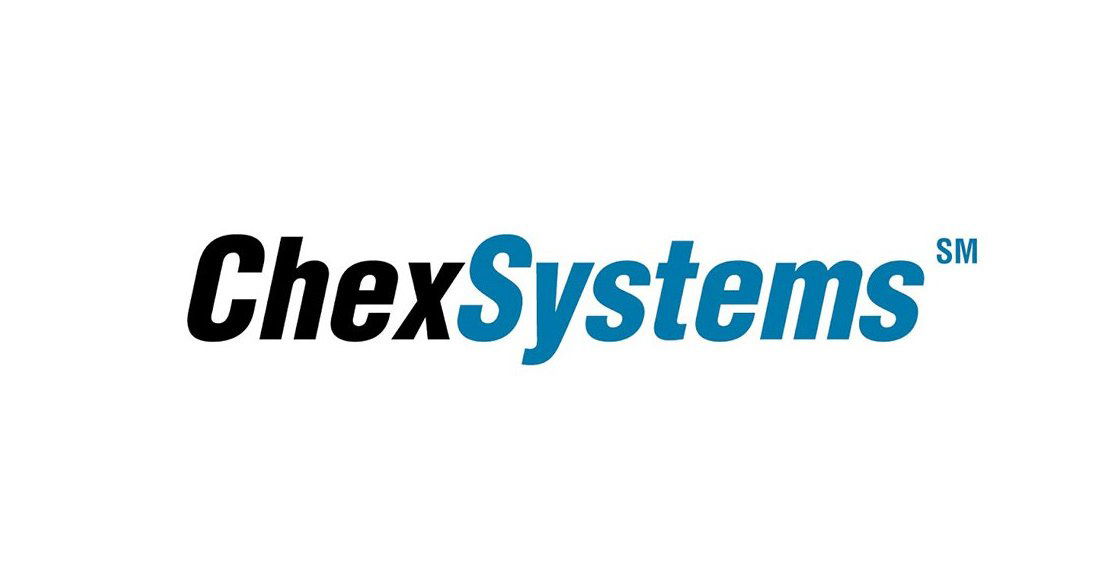Knowing how to tell if you’re in ChexSystems is just as important as checking your credit report. If you’re in ChexSystems, it’s not good. It could make it difficult (if not impossible) to open new bank accounts.
The problem is that most people in ChexSystems don’t know about it. Here’s how to tell if you are in the system and what you can do about it.

What is ChexSystems?
ChexSystems is a consumer reporting agency for banks and credit unions. It’s similar to credit bureaus, but there’s a notable distinction. ChexSystems primarily focuses on your banking behavior, tracking issues like bounced checks, overdrafts, and other account mismanagement. In simple terms, staying out of ChexSystems means maintaining responsible banking habits.
In contrast, credit reports are almost universal, documenting your credit history whether it involves credit cards, loans, or other types of credit. Your credit score, derived from this history, influences your eligibility for future credit.
Having a ChexSystems report is generally undesirable, indicating banking missteps or potential misinformation. However, even with prudent banking, risks like clerical errors, identity theft, or fraud can lead to an unwarranted ChexSystems record. Therefore, being aware of your status in ChexSystems is crucial.
3 Banks That Don’t Use ChexSystems
U.S. Bank
- Up to $450 sign-up bonus
- $25 minimum opening deposit
- Monthly service fee can be waived
- Over 40,000 fee-free ATMs
SoFi
- Up to $300 sign-up bonus with direct deposit
- No minimum opening deposit
- Earn up to 4.60% APY
- Over 55,000 fee-free ATMs
- Early pay with direct deposit
Current
- Build credit and earn points with every swipe
- No minimum opening deposit or maintenance fees
- Get paid up to 2 days faster
- No credit check or ChexSystems
What leads to a ChexSystems report?
ChexSystems contains a listing of all people who have done wrong with their checking or savings accounts, and their banks reported them. Most banks and credit unions use ChexSystems. So, if you’ve done something wrong with your bank account in the past five years, chances are you’re in it.
Each bank has different reasons for reporting clients to ChexSystems, but the most common reasons are:
Bounced Checks
If you wrote checks you couldn’t cover, you bounced a check. Not only is this embarrassing, but it costs you more money. Banks charge between $20 – $40 for each bounced check. Plus, you have to cover the cost of the check that you wrote to another merchant or person.
Overdrafts
If you spent more than your account balance using your ATM card, you overdrafted. Banks typically charge an overdraft fee daily until you bring the account current. If it goes on too long, they could just close your account too. Even if you have overdraft protection, banks will report you if you go over your balance because it’s a poor use of your bank account.
You Owe a Bank Money
If you have any unpaid bank fees, the bank will likely report you to ChexSystems. Just like you’d get reported to the credit bureaus if you don’t pay a bill, it’s the same thing. Unpaid fees for bounced checks or overdrafts are the most common issues.
You Keep a Negative Balance
If you always keep a negative balance or excessively overdraft/bounce checks, banks will report you to ChexSystems. Maintaining a negative balance is bad practice and only leads to more monthly fees and interest charges.
A Bank Closed Your Account
If a bank or credit union closes your account for account abuse or unpaid fees, they’ll report it to ChexSystems. A forced closed account isn’t a good thing. It shows other financial institutions that you aren’t financially responsible.
But there are a few other reasons you may be in ChexSystems, including clerical errors or fraudulent activity.
Clerical errors occur often. That’s why it’s essential to pull your ChexSystems consumer report annually. Check for any reports that don’t seem right to you. Pull the proof that the information is incorrect and dispute it.
It’s even more important to know how to tell if you’re in ChexSystems, to check for fraudulent activity. If someone opened an account in your name or did other fraudulent activity, it will likely appear on the report. Not only can you clear up your ChexSystems report, but you may also want to check your consumer credit to see if they hit you there too.
How to Obtain Your ChexSystems Report
There are several ways to find out if you’re in ChexSystems.
- Request a ChexSystems report online: Visit the ChexSystems website to request a report. Provide your full name, address, and social security number. This report will show unpaid fees, bounced checks, fraud suspicions, credit inquiries, and more. ChexSystems will send the report within five business days. Only you can request your report, and if you’re not in ChexSystems, you’ll receive a blank report.
- Request by mail: If you prefer, you can request your ChexSystems report via mail. Download and fill out the form from the ChexSystems website, and mail it to:
Chex Systems, Inc.
Attn: Consumer Relations
7805 Hudson Road, Suite 100
Woodbury, MN 55125
The report will be mailed to you within five business days of receiving your request. - Phone request: Call ChexSystems at (800) 428-9623 and verify your personal information through their voice messaging system to receive a report.
- Fax request: Fill out the same request form as for mail and fax it to ChexSystems at their provided number.
Inspect your ChexSystems report for inaccuracies, which might be due to fraud, identity theft, or bank errors. Inaccuracies might include outdated account statuses or incorrect delinquency dates. Address these issues promptly if you find any discrepancies.
Why does it matter if you’re in ChexSystems?
You may wonder why it’s essential to know how to tell if you’re in ChexSystems.
There’s one reason.
You won’t be able to get a new checking or savings account. If you have entries in the system, they’ll stay there for five years unless you clear them up. Fortunately, there are simple ways to clear up your ChexSystems report.
Meanwhile, if you need a new bank account, you can explore several options, including:
- Banks that don’t use ChexSystems – While about 90% of banks and credit unions use ChexSystems, some banks don’t. There are great online banking options like Chime that offer a checking account without checking ChexSystems. They don’t offer paper checks, but you do get a debit card and online account you can use to manage your funds, pay your bills, and save for financial goals.
- Second chance checking account – Some banks offer second chance checking accounts for individuals listed in ChexSystems. These accounts usually come with higher fees and minimum balance requirements. However, over time, demonstrating consistent, responsible banking behavior can lead to qualification for a standard checking account.
- Prepaid card – If you don’t want a bank account but need somewhere to store money and a way to pay your bills, a prepaid card may help. It works like a debit card, but without a bank account. Many banks even allow you to have your paycheck deposited directly to your prepaid card.
4 Ways to Clear Up ChexSystems
Once you learn how to that you’re in ChexSystems, it’s essential to know how to clear up the information provided there.
1. Dispute Errors
If you pull your ChexSystems report and find erroneous information in it, dispute it. You’ll need proof to dispute the information you provide, though, so gather your paperwork before fighting it. According to the Fair Credit Reporting Act, the bank or CRA has 30 days to respond to your dispute.
While the ChexSystems’ website offers a way to dispute a claim online, you can also do so by mail. It’s recommended to use the mailing option so that you can get proof of delivery. It is vital to keep a paper trail if the bank or CRA does not respond in time or if you need to prove they received your paperwork.
2. Pay Your Fees
If you’re in ChexSystems because of unpaid fees, pay them. Work the fees into your budget and pay the banks off as soon as possible. If you can’t afford the full payment and the bank sent the debt to a collection agency, you may be able to negotiate a lower settlement amount with the collection agency.
3. Ask For the Debt to Be Removed
If you are in ChexSystems because of unpaid fees, and you paid them, ask the bank or ChexSystems to remove them from your record. You won’t always be successful, but the more proof you have of the paid balance, the higher your chances of getting it removed become.
4. Wait Five Years for the Record to Drop
If none of the above tricks work, you may have to wait five years for the record to drop off your profile. Each mark on your consumer report will stay on for five years if you don’t get it removed. The more time passes between the occurrence and your new application, the higher your chances of getting approved.
Final Thoughts
Even if you think you’ve done nothing wrong with your bank accounts, it’s essential to know how to tell if you are in ChexSystems. Knowing what’s reported in the system will help you determine what next steps you need to take, whether it’s a clerical error, fraudulent activity, or something you did wrong.
Fortunately, it’s easy to remove information from your ChexSystems report if you have the proper proof. The faster you dispute information or pay your dues and ask the bank to clear it, the quicker you can eliminate your report and be eligible for new bank accounts.






